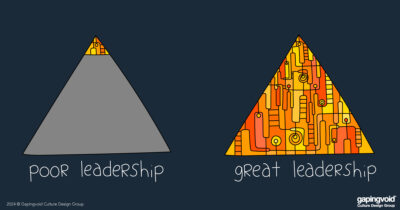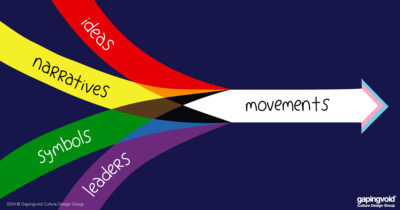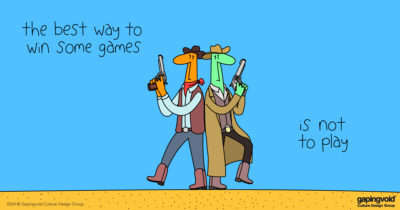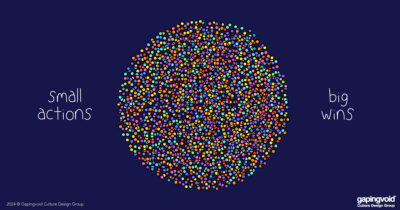The Gapingvoid Email
Three times a week, we'll send you a thought-provoking illustration about the world of work along with a short snippet of insight. Our emails cover topics like company culture, design thinking, leadership strategies, creating better-functioning teams, navigating the hybrid work environment, and more. They are designed as quick reads to give you insight into working smarter and being more connected to why you do what you do. We also feature guest posts from thought leaders around the world and answer culture questions sent in by our readers. People who enjoy the daily email most are often senior leaders in business, healthcare execs, entrepreneurs, and academics.
We hope you'll join our community!
If you would prefer to receive only one email per month please subscribe to our Monthly Digest using the form below.
Read our latest posts below:
The Second Job of a Leader
Napoleon didn’t conquer most of Europe all by himself. He had other people helping him, of course. Literally armies of them. The reality is, it’s …
How To Create A Movement
Symbols are a funny thing. We all know what they are…. But do we really? What is it about, say, the Pride Flag, a piece …
The Art of Opting Out
As the old saying goes, “no response is still a response.” And it’s precisely the response Apple CEO, Tim Cook, recently gave to Elon Musk. …
The Clues to Success
As Tony Robbins says,“success leaves clues.” Whenever there is a great accomplishment, we like to examine it, reengineer it, decode it, and learn a lesson …
The Case for Cheap Bets
Disney is having a bad time of things lately, with some high profile box office flops, or at least, major disappointments. 2023 was the year …
Feelings Are Who We Are
Driving a tank in the Second World War was a high-stakes, scary, and dangerous job. So tank crews did what humans tend to do in …





